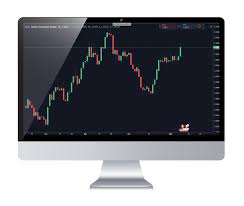
The Ultimate Guide to Choosing the Right Forex Broker
Navigating the expansive world of forex trading requires more than just an understanding of market trends and analysis. A critical factor that determines your trading experience is the forex broker you select. With over 10 million forex traders worldwide and thousands of platforms to choose from, finding the right broker is both a challenging and essential step. This guide breaks down the key considerations to help you make a well-informed decision.
Regulatory Compliance – A Non-Negotiable Factor
When evaluating forex brokers, regulatory compliance should be your first checkpoint. According to a 2023 Statista report, the global online trading market faced $20 billion in losses due to unregulated brokers. Opt for brokers regulated by authorities like the Financial Conduct Authority (FCA) in the UK, the Commodities Futures Trading Commission (CFTC) in the USA, or similar reputable organizations. Compliance ensures that your funds are safeguarded against fraud and malpractice.
For example, FXTM or Interactive Brokers are known for their compliance with international standards, which assures traders of security and transparency.
Fees and Spreads – Small Costs Add Up
Forex trading can involve hidden fees that slowly erode profitability. Brokers typically make money through spreads, commissions, or both. According to Forex.com, the average spread for major currency pairs like EUR/USD ranges between 0.6 and 1 pip, but unregulated brokers may charge much higher spreads, reducing profitability for traders.
For cost-conscious traders, zero-commission brokers like Pepperstone or low-spread brokers such as IC Markets are worth exploring.
Trading Platforms and Tools
A broker’s platform is your main gateway to the forex market. More than 68% of traders consider platform usability and analysis tools an essential factor when choosing a broker, according to MarketWatch studies.
Platforms such as MetaTrader 4 (MT4) or MetaTrader 5 (MT5) are industry favorites, offering real-time market data, advanced charting tools, and a user-friendly interface. While choosing, ensure the platform suits your trading style—whether you are a scalper, day trader, or long-term investor.
Transaction Speed and Payment Methods
Payment diversity matters. Research by BrokerNotes reveals that 45% of traders prefer brokers that offer PayPal or digital wallet compatibility in addition to bank transfers. Transaction speed is equally crucial—if order processing delays occur during high-volatility periods, you might incur losses. IG Markets and eToro score well for swift transactions.
Quality of Customer Support
Last but not least, reliable customer support can make or break your trading experience. Studies by Zippia indicate 1 in 3 traders lose interest in platforms due to poor client support, demonstrating its significance.

